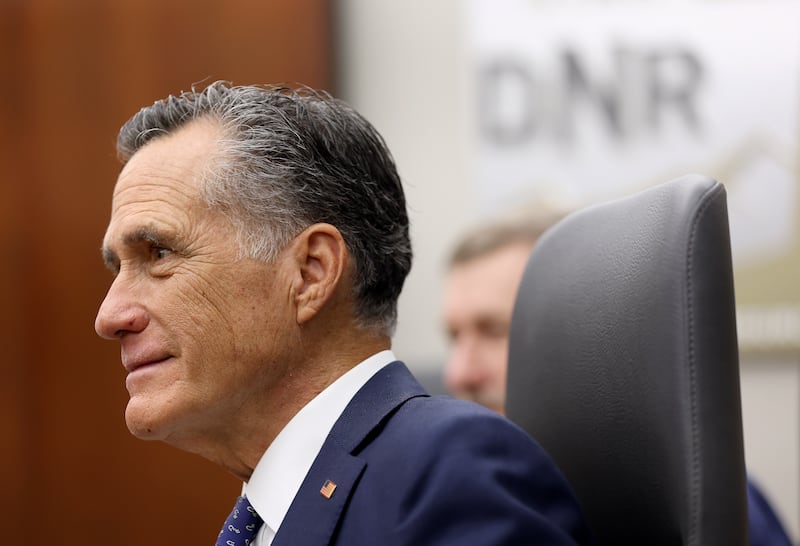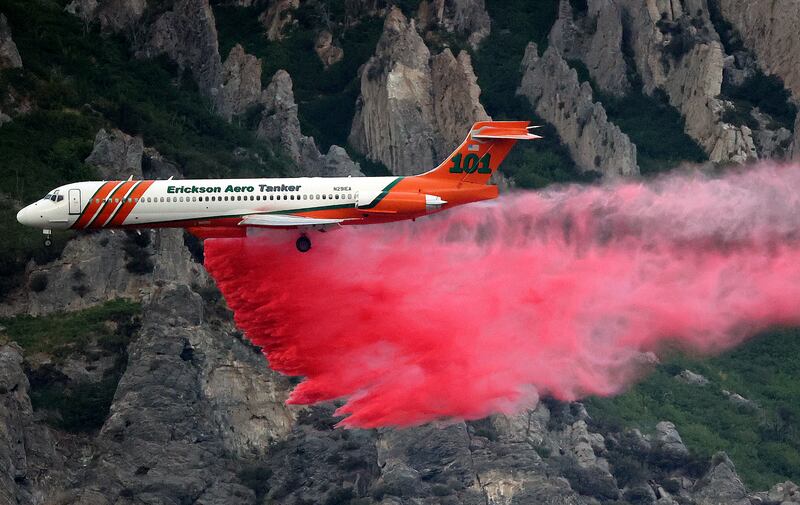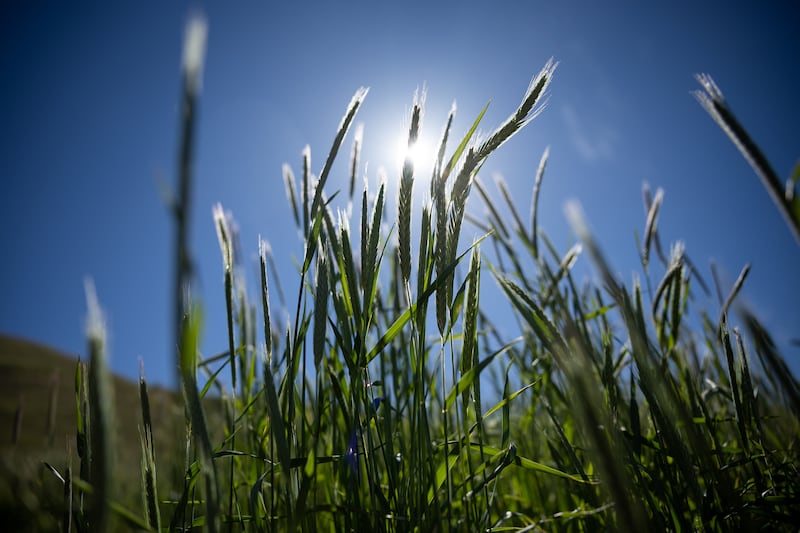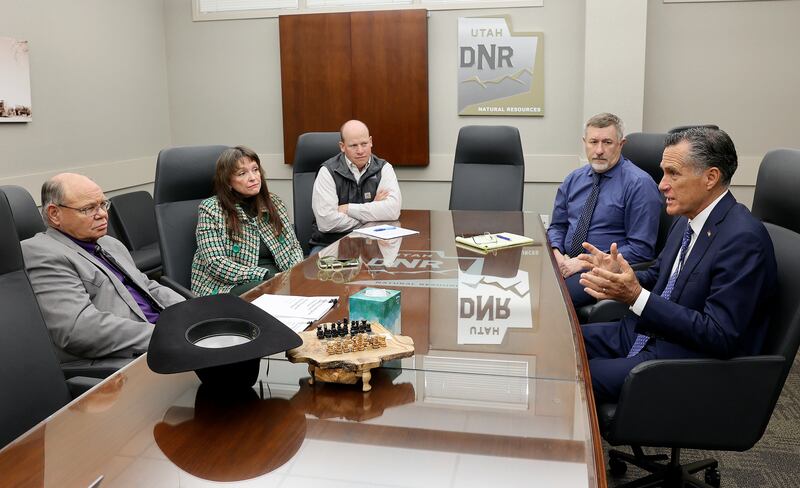Utah Sen. Mitt Romney sat down Friday morning with state representatives of a federal wildfire and mitigation commission he helped establish to learn of problems and recommendations on how to help ease the pain and breadth of wildfires in the West.
The Deseret News was granted exclusive access to the briefing, which included Todd Adams, deputy director of the Utah Department of Natural Resources, Rich County Commissioner Bill Cox, and Kathy Holder, the Utah State Hazard Mitigation officer under the Utah Division of Emergency Management.
While he said he wasn’t necessarily surprised, Romney told representatives of an aviation working group the problem is so complex it entails more than just buying a few DC-10s and putting them in the sky.
Citing a famous quote, Romney said every complex problem has an answer, which is simple, straightforward, and wrong.
“This is complex, more complex after reading this report,” he said. “But from reading the report, we’re going to need additional time and additional resources for the commission.”
Romney emphasized it is particularly important to get the California delegation on board with wildfire efforts in the West because its numbers are so huge but also because the state has suffered such devastation, including the fire in Paradise in which an entire town was obliterated by a fast-moving blaze in 2018.

“They really need to get animated on this,” Romney said.
Both Holder and state representatives said they have been able to build a ground-up, good working relationship with federal partners and private entities to quell wildfire risk in the state through the Watershed Restoration Initiative, which has addressed wildfire risks on nearly 2.4 million acres since its inception and is touted as a model for other states to follow.
But Holder said the problem with proactive pre-wildfire risk projects are the federal rules which often limit how agencies respond.
Cox and others said it can take five years or longer to go through the environmental review process for a controlled burn or some other action to reduce the proliferation of trees in overgrown forests.
Romney said those federal hurdles must be overcome to protect public safety and to promote healthy forests before a “California” happens in Utah.
“We’ve got to approach this differently than we have in the past. And we have been fortunate here that while there’s been economic impact and a lot of structures have been lost, we haven’t had massive loss of life like they’ve had in California,” he said. “But if we continue to have drought, which hopefully we don’t, this is going to be a reality. We’re going to have to deal with it. We’re going to have to change the way we have fought fire from the ways we’ve done in the past.”

Cox said the government also struggles with the uncertainty and lack of appeal built into short-term contracts for aviation equipment to fight wildfires and a lack of a workforce willing to work for short durations such as a year.
“As you can see, there’s no easy answer. It’s not like well, we need to buy more airplanes. Or, you know, because you buy more airplanes, then we need more people to fly them and we need more mechanics and we need more people on the ground,” Cox said.
There’s limited areas, too, in Utah where a plane the size of a DC-10 can land and federal teams are often already obligated on fighting active fires elsewhere in the West, so the state recently invested in a couple helicopters to help suppression efforts.
Additionally, there is a bill working its way through the Utah Legislature that makes substantive changes and adds resources to the state’s wildfire suppression fund, policies and efforts.
Romney added that being able to cut through the federal bureaucracy would make a difference in response to the West’s wildfires, which he says are posing an extreme risk often not fully understood.
“The challenge is if we’re being attacked by a foreign nation right now dropping bombs and killing Americans and wiping out towns, we would be aggressively taking action and just saying, putting everything aside, we’re gonna go after it,” Romney said. “And we are being attacked by just the reality of drought and fire and it’s having the same impact as if someone was dropping bombs on us.”
Romney, along with Rep. John Curtis, R-Utah, and Sen. Mark Kelly, D-Arizona, first introduced the Wildland Fire Mitigation and Management Commission Act — bipartisan and bicameral legislation — to establish a commission of federal and nonfederal stakeholders to study and recommend fire prevention, mitigation, management and rehabilitation policies for forests and grasslands in the summer of 2021. The legislation was later included in the bipartisan infrastructure bill.



